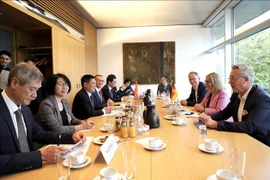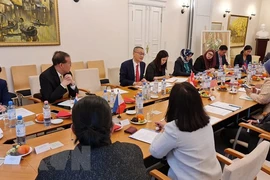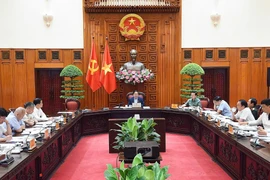Berlin (VNA) – Germany’s incoming coalition government, led by to-be Chancellor Friedrich Merz, is expected to prioritise strengthening economic ties and deepening relations with the Association of Southeast Asian Nations (ASEAN).
According to Prof. Dr. Dang Hoang Linh, Counselor at the Vietnamese Embassy in Germany, Berlin plays a key role in shaping the European Union (EU)’s trade responses, especially to protectionist measures such as US President Donald Trump's tariff policy. Germany's economy, heavily export-driven in sectors like automobiles and machinery, is particularly sensitive to global trade instability.
In response to US threats of tariffs, especially on electric vehicles, Germany has pushed for EU-wide unity and engaged in dialogue with domestic industry associations and major companies like Volkswagen and Mercedes-Benz. It has also revived interest in a transatlantic free trade zone through restarting TTIP (Transatlantic Free Trade Area) negotiations.
Germany is also preparing defensive measures if tariffs materialize, including countermeasures, financial support for affected sectors, and market diversification. It supports retaliatory taxation on US digital services and coordinated EU actions at the WTO.
The new coalition will maintain a “multi-pillar” approach to economic diplomacy, reviving the Indo-Pacific Strategy launched in 2020. ASEAN, with over 680 million people and a combined GDP of 3.6 trillion USD, is viewed as a key growth partner.
Germany is expected to push for ratification and implementation of the EU-Vietnam Investment Protection Agreement (EVIPA), which safeguards German investors. It may also pursue bilateral deals with other ASEAN nations and prioritise strategic sectors like green energy, smart cities, and digital innovation.
Beyond trade, Germany will expand “climate diplomacy” in ASEAN, supporting green hydrogen, carbon markets, and vocational training in clean energy.
In the long run, Berlin aims to elevate ties with ASEAN to a Comprehensive Strategic Partnership and launch an annual EU–ASEAN consultation mechanism on economic security, especially in sensitive industries like semiconductors and renewable energy./.
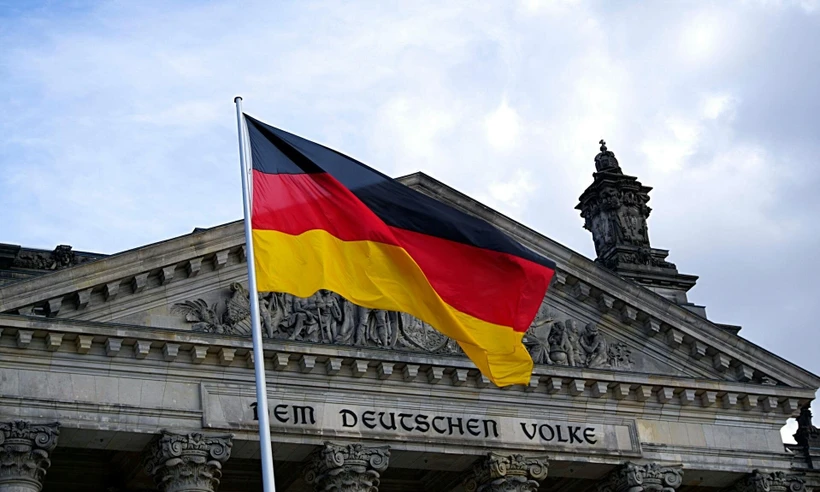
See more

Thailand aims to reduce workplace accidents
The "Safety Thailand" vision is to cut severe work-related injuries from 2.13 persons at present to no more than one per 1,000 workers, and fatalities from 5.3 to a maximum of three per 100,000 workers by 2030.

Cambodia intensifies efforts to add ancient temples to UNESCO World Heritage list
Cambodia currently boasts four World Heritage Sites: the Angkor Archaeological Park, the Temple of Preah Vihear, the Sambor Prei Kuk Archaeological Site, and the Koh Ker Temple complex.
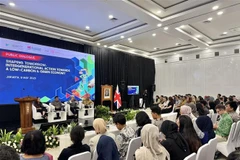
Indonesian dialogue stresses intergenerational action for green economic development
Indonesia has reaffirmed its commitment to achieving net-zero emissions by 2060, with environmental sustainability and resilience becoming key pillars in the country's national development vision.
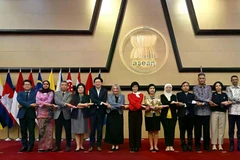
ASEAN, New Zealand set sights on comprehensive strategic partnership
ASEAN, New Zealand set sights on comprehensive strategic partnership

Thailand marks progress in cross-border cyber fraud crackdown
The "3 Cuts" strategy, including cutting electricity, fuel, and internet access to five locations along the Thailand - Myanmar borders where many scam centres are located, led to a significant reduction in call centre activities along key border areas.

Thailand updates search efforts at collapsed building following Myanmar earthquake
As of May 8, Thai authorities had confirmed 89 fatalities, nine injuries, and eight individuals still missing in the State Audit Office (SAO).building collapse following Myanmar earthquake.
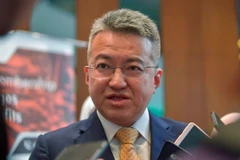
Malaysia develops data centres to become technology nation
Addressing an event to launch Data Centre Nexus 2025 on May 8, Liew said that data centres could become the largest off-takers to boost local technologies, helping the country achieve its industrial and energy transition aspirations by adopting a “whole-of-value-chain” investment approach.
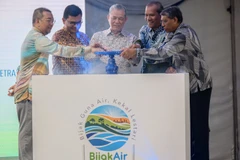
Malaysia launches campaign to safeguard water resources
The campaign is built on four key pillars - sustainability, preservation, advocacy, and nurture, encompassing education, stakeholder engagement, and a holistic shift in public behaviour.
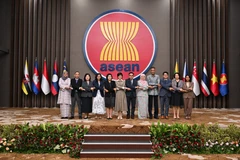
Vietnam actively promotes ASEAN integration initiatives
The meeting reviewed the implementation of Initiative for ASEAN Integration (IAI) projects and discussed measures to enhance the effectiveness of IAI Work Plan IV (2021–2025).

Thailand calls for farm price stability
Thai Prime Minister Paetongtarn Shinawatra encouraged the acceleration of the "Thai Select" initiative, which certifies high-quality Thai products to promote exports, particularly to assist Thai restaurants abroad in using quality Thai ingredients, which benefits farmers' incomes.
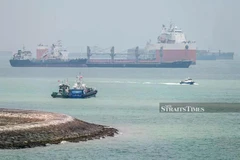
Singaporean navy to use unmanned mine-hunting ships from 2027
The unmanned systems will be equipped with advanced sensors and secure communication networks, allowing operators to detect and neutralise naval mines from a safe distance.
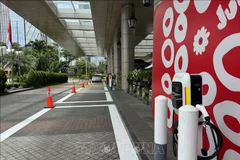
Indonesia to allow private companies to build EV charging stations
In March, Vietnamese automaker VinFast announced its plan to gradually establish 30,000 to 100,000 public EV charging stations (SPKLU) in various regions of Indonesia, especially Java.

Philippines aims to become 2-trillion-USD economy by 2050
The Philippines’ economic transformation will be driven by initiatives that promote new growth drivers while strengthening existing sectors, with private sector involvement playing a key role, particularly in infrastructure and investments that will deliver lasting impact and shared prosperity.
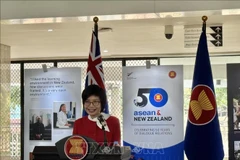
Photo exhibition marks 50 years of ASEAN–New Zealand dialogue partnership
A photo exhibition commemorating the 50th anniversary of the ASEAN–New Zealand Dialogue Partnership officially opened on May 8 at the ASEAN Secretariat headquarters in Jakarta, Indonesia.

Thailand officially bans e-cigarettes in schools, offices
To prevent further harm to the health of children and adolescents, Thailand has introduced four key measures, including a total ban on vaping in all ministry-run schools and offices nationwide.

Malaysia takes actions to retain talents
Economist Prof Geoffrey Williams from the Malaysia University of Science and Technology held that the main reasons are the lack of job opportunities in Malaysia for high-skilled graduates, poor career development and limited promotion prospects.
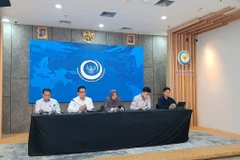
Indonesia plans 200,000 ha of new marine conservation areas in 2025
Indonesia will set up 200,000 hectares of new marine conservation areas in 2025. The plan aligns with sustainable marine spatial planning.

Malaysia tightens security ahead of ASEAN Summit
Malaysia assumed the ASEAN Chairmanship from Laos on January 1. This year event is held under the theme of “Inclusion and Sustainability”, reflecting the country’s aspiration to build a united and prosperous ASEAN.
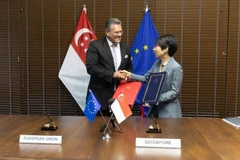
Singapore, EU ink digital trade agreement
The agreement supplements the EU-Singapore Free Trade Agreement (EUSFTA) that entered into force in 2019.

Indonesia faces challenge of boosting labour productivity
The nation is also grappling with several structural barriers that hamper productivity growth.
